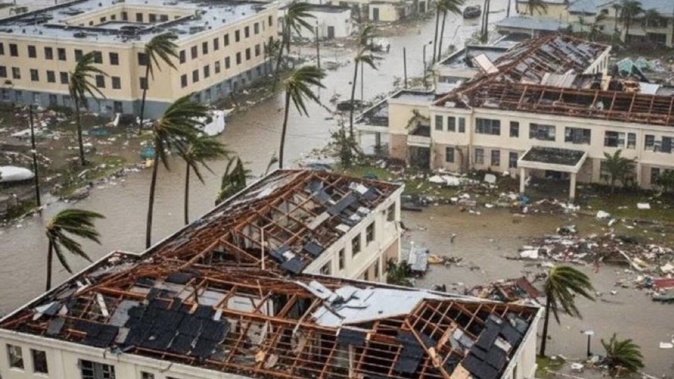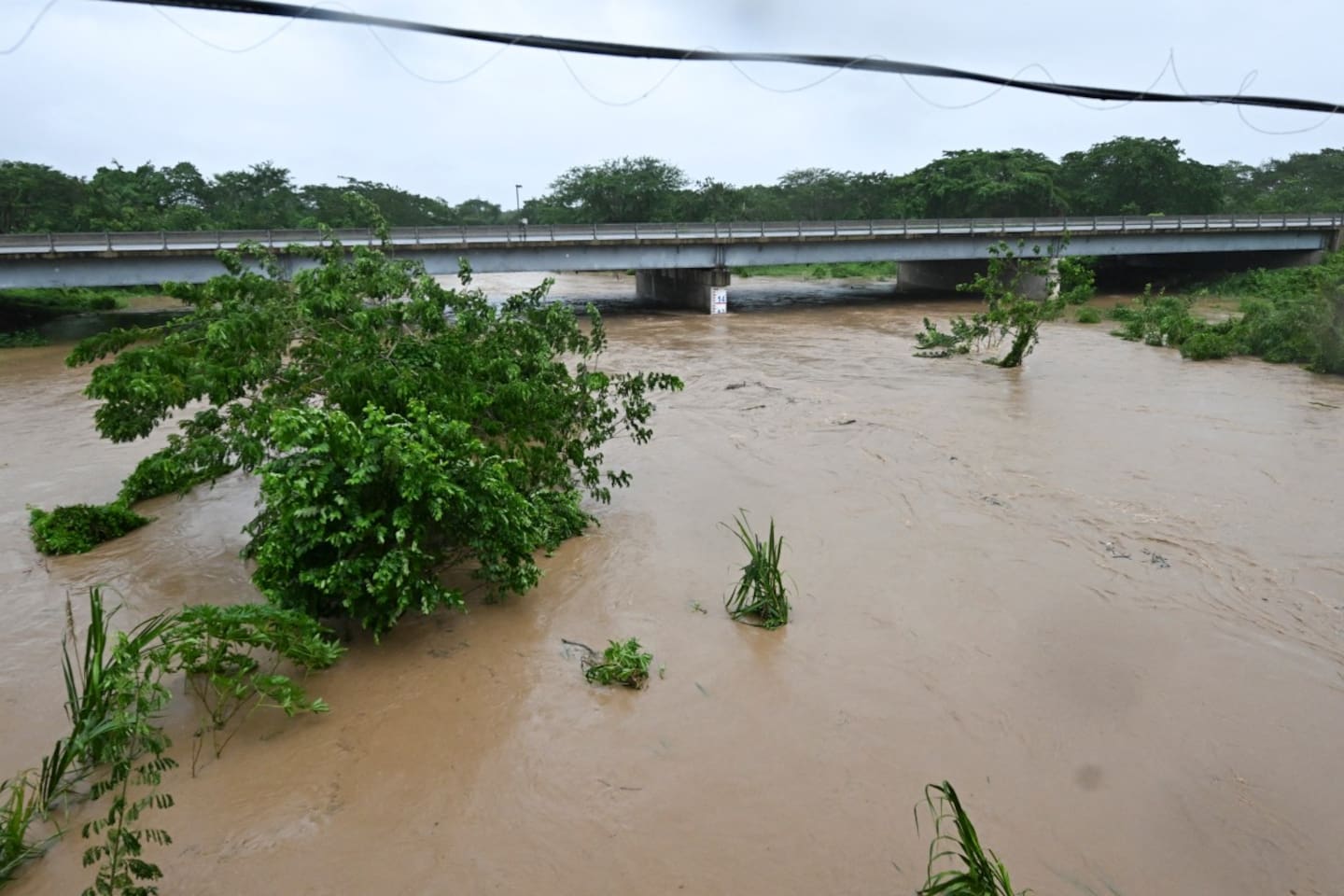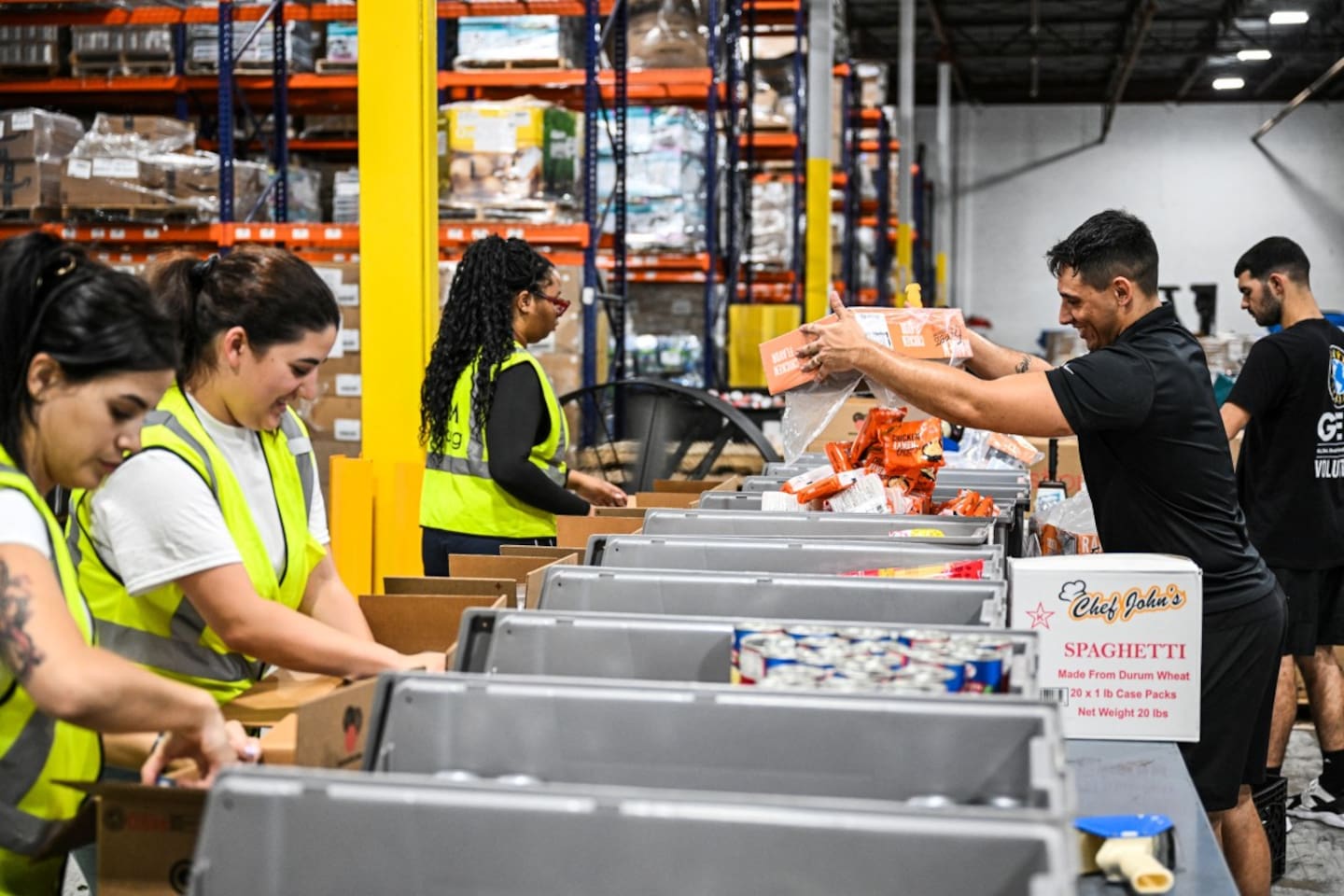
Hurricane Melissa ripped a path of destruction through Jamaica after making landfall as one of the most powerful hurricanes on record today, lashing the island nation with brutal winds and torrential rain before heading towards Cuba.
Prime Minister Andrew Holness declared the island a “disaster area” and authorities warned residents to remain sheltered over continued flooding and landslide risk, as dangerous weather persisted even as the hurricane’s worst moved on.
The scale of Melissa’s damage in Jamaica wasn’t yet clear, as a comprehensive assessment could take days and much of the island was still without power, with communications networks badly disrupted.
At its peak, the storm packed ferocious sustained winds of 300km/h. Immediate details regarding casualty figures were not available.

Hurricane Melissa caused severe destruction in Jamaica with 300km/h winds. Photo / Getty Images
Government minister Desmond McKenzie said several hospitals had been damaged, including in the hard-hit southwestern district of Saint Elizabeth, a coastal area he said was “underwater”.
He told a briefing: “Saint Elizabeth is the bread basket of the country, and that has taken a beating. The entire Jamaica has felt the brunt of Melissa.”
The hurricane was the worst to ever strike Jamaica, hitting land with maximum wind speeds even more potent than most of recent history’s most brutal storms, including 2005’s Katrina, which ravaged the US city of New Orleans.
The storm took hours to cross over the Caribbean nation, a passage over land that diminished its winds, dropping by Tuesday evening local time to a Category 3 storm from the top-level of 5.
But the still-powerful Melissa was set to hit Cuba overnight and later the Bahamas.
Even before Melissa slammed into Jamaica, seven deaths – three in Jamaica, three in Haiti and one in the Dominican Republic – had been blamed on the deteriorating conditions.

Two men repair a roof after Tropical Storm Melissa passed through Barahona, Dominican Republic on October 28. Photo / Carlos Fabal, AFP
Jamaica’s climate change minister told CNN Hurricane Melissa’s effect was “catastrophic”, citing flooded homes and “severely damaged public infrastructure” and hospitals.
And as if that weren’t enough, health authorities were urging vigilance against crocodiles displaced by the torrential rains.
“Rising water levels in rivers, gullies, and swamps could cause crocodiles to move into residential areas,” the South East Regional Health Authority (SERHA) posted in a public service announcement on Instagram.
Mathue Tapper, 31, told AFP from Kingston that those in the capital were “lucky” but feared for fellow Jamaicans in the island’s more rural areas.
“My heart goes out to the folks living on the western end of the island,” he said.

The Rio Cobre bursts its banks near St Catherine, Jamaica, shortly before Hurricane Melissa made landfall on October 28. Photo / Ricardo Makyn, AFP
The mammoth storm could leave devastation on the scale of some of the worst hurricanes in recent memory such as Katrina, Maria or Harvey.
Broad scientific consensus says human-driven climate change is responsible for intensified storms like Melissa that are occurring with increased frequency and higher potential for destruction and deadly flooding.
Melissa lingered over Jamaica long enough that the rains were particularly dire.
“Human-caused climate change is making all of the worst aspects of Hurricane Melissa even worse,” said climate scientist Daniel Gilford.
The Jamaican Red Cross, which was distributing drinking water and hygiene kits before infrastructure disruptions, said Melissa’s “slow nature” exacerbated the anxiety.
The UN is planning an airlift of some 2000 relief kits to Jamaica from a relief supply station in Barbados once air travel is possible.

Several hospitals were damaged, and the UN plans to airlift medical relief supplies as soon as conditions allow. Photo / Chandan Khanna, AFP
Assistance is also planned for other impacted countries, including Cuba and Haiti, UN spokesman Stephane Dujarric told journalists.
Jamaican officials said some 25,000 tourists were in the country, which is famed for its normally crystalline waters.
Meanwhile, Olympian sprinter Usain Bolt, one of Jamaica’s most famous figures, was posting regularly on social media with messages for his home country: “Pray for Jamaica”.
– Agence France-Presse
Take your Radio, Podcasts and Music with you









